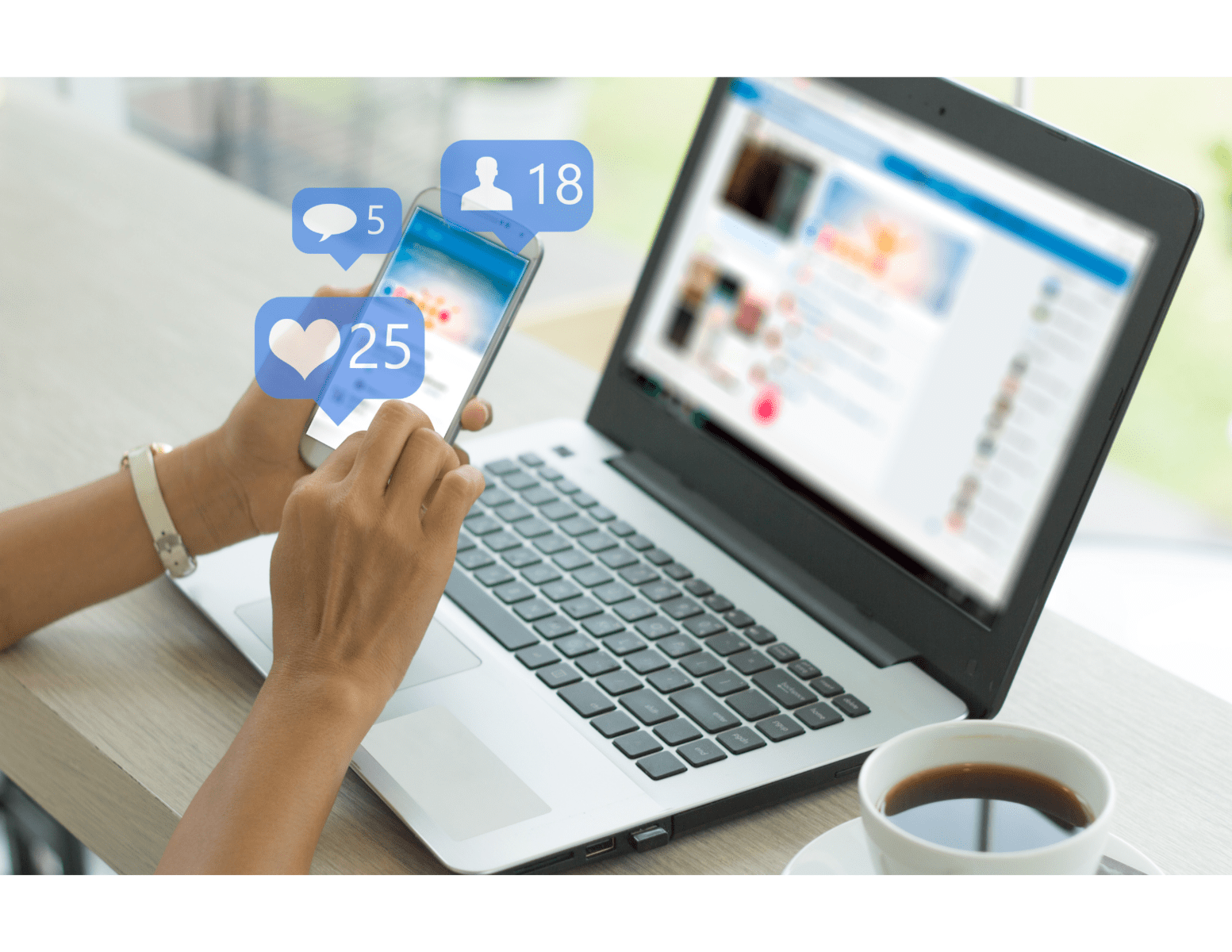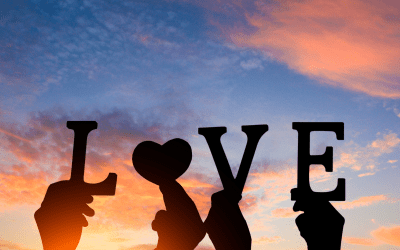
Social Media & Scrolling: How it Impacts Your Mental Health
This post may contain affiliate links, which means we may receive a commission, at no extra cost to you, if you make a purchase through a link. Please see our full disclosure https://sagecounselingtherapyandwellness.com/disclosure-privacy-policy-terms-of-use/ for further information.
We have all been there. We click on one app to quickly get updated and then find ourselves losing track of time. Soon, we are on the fifth app and already down the rabbit hole of social media scrolling without even realizing it.
Social media can be a wonderful tool used to connect with others and keep up with friends, family, companies, and even the news. However, it can also be a tool used for distraction, entertainment, curiosity, and to waste time while still feeling occupied.
This can be helpful at times, but too much scrolling can have a larger impact on our mental health than we can notice. Since it seems like a mindless activity, it can often be viewed as having little impact.
Social media can influence how we view others, ourselves, and the world around us. So, it’s important to know how and why it influences our mental health and overall wellness.
Why We Continue To Scroll:
- “FOMO”
A big reason as to why we continue to scroll on social media for longer periods of time than we wish comes down to two major reasons: “FOMO” and dopamine. The phrase “FOMO”, or “fear of missing out,” is the idea that if we do not stay updated on major (or even minor) events, people, connections, and trending topics we will fall behind and not be included.
For many of us, this can make us feel more disconnected from the world around us, leading to the possible creation of anxiety and depression. With this fear of missing out in the back of our minds, we continue to scroll in hopes of staying more connected.
On the flip-side of “FOMO”, social media can also influence an increase in negative emotions when we see something we did not attend or know about. It can increase the feelings of exclusion, even if there are logical reasons for not knowing or being invited to an event that took place. Our brains love to jump to conclusions that often correlate with the first emotion we feel.
So, it seems that this fear of missing out is not as helpful as we believe it to be. But, behind this idea, there is another driving factor that continues to push this narrative, which is a thing we all love: dopamine.
- Dopamine
The reason why we continue to scroll even if we feel as though it’s a mindless activity that we are not gaining much out of is due to our brains receiving dopamine through these actions. Dopamine is a hormone that is produced in our brain and is released through rewarding behaviors.
The release of dopamine motivates us to continue repeating these rewarding patterns. This is where scrolling on social media comes into play. If we are continuing to receive this hormone that makes us feel good, of course, we will continue with the behavior that rewards us; especially if it seems easy!
With the emergence of smartphones and social media apps, they are almost a guaranteed way to receive constant social stimuli, whether it’s positive or negative, and will give us the possibility of dopamine increase. Because of this dopamine increase, we naturally keep coming back for more. Unfortunately, this creates a cycle of endless scrolling.
“FOMO” and dopamine, along with the accessibility of smartphones, create a unique combination that allows us to carry on scrolling through social media while simultaneously losing track of time. Now that we understand the two main driving factors that influence the increase in scrolling, we are able to start to see how it has the ability to impact our mental health and overall wellbeing.
How Social Media Impacts Mental Health:
Social media can be a powerful tool used to add to your life, but once it becomes addictive is when it is no longer a tool, but rather a crutch. Trouble can surface when one starts to rely on social media to stay connected, maintain happiness, and receive validation. In return, this can cause an increase in depression, anxiety, and loneliness. This is why it’s important to understand and rethink how you view social media and its benefits.
If you believe social media is a way to gain validation, it’s probable that you are putting too much emphasis on the relationships maintained on social media and the interactions that follow. By doing so, there can be a likelihood of disappointment, low self-esteem, and anxiety by relying on this as a tool of validation and self-worth.
This is because if you correlate a number of followers, likes, shares, or interactions on social media with your self-esteem and self-worth, you will then begin to only see yourself positively if your social media interactions are positive, which is a lost cause because social media is often not genuine.
If you believe social media is a way to gain inspiration—-whether it’s personal, work, or social—it can go two ways. If you see inspiration as a way to gain a new perspective or ideas, then social media is a great tool to use! But, if you use social media inspiration as a form of competition, then you will begin to fall down the rabbit hole of striving for something less positive, even if it’s desirable.
Through filters, high-fashion, and well-known social media influencers, it’s easy to begin to compare and compete with the ideas and people that are “well-liked” and strived after while scrolling through your feed.
For perfectionists, social media comparison is an even bigger struggle by creating an atmosphere that causes a perfectionist to feel as though they are inadequate through constant comparison and competition. In return, this causes perfectionists to feel drained and negatively impacted by going on social media sites.
But, remembering that there is a lot more behind the scenes as to why these people and companies are viewed that way can be easy to forget. Through this, it becomes easier to compare yourself to others, which can negatively impact your self-esteem.
This is why it’s important to check in with yourself and ask questions like:
- “Why do I follow them?”
- “How does this make me feel?”
- “Is this helping or hurting me?”
- “What am I truly gaining from this interaction?”
By asking yourself these questions, you push toward a more positive experience online. Social media is something that the majority of us use and can be extremely beneficial, but it can also easily turn into a tool that is not as helpful as we believe. There are a few ways that can help turn this narrative into a more positive and productive experience.
What To Do Now:
If you are someone who feels like your relationship with social media isn’t how you want it to be, or you just want to change the amount of time used on these apps, here are a few things you can do that will help:
- You feel like you spend too much time on social media, but can’t seem to stop no matter how many times you may attempt to cut back. Try:
- Turning off notifications for times you want to focus on other tasks:
- By doing this, your phone will be less likely to distract you, and the thought, “I’m just going to check this one thing” won’t happen.
- Setting time aside each day for social media. For example: “3 p.m. – 5 p.m. → catch up on social media”:
- By blocking off time each day, you are able to prioritize other aspects of your life and not fall down the scrolling rabbit hole.
- Finding a new activity to occupy your mind, or relax:
- A book focused on relaxation and managing stress with easy techniques is a great way to feel like you’re still productive, but having the ability to sit down and unwind. One book that is helpful is, “Learn to Relax: A Practical Guide to Easing Tension and Conquering Stress” by Mike George.
- You feel like your relationship with social media isn’t as positive as you would like it to be, and can’t seem to find a way to change that. Try:
- Filtering out your following and interaction lists:
- Unfollowing accounts that don’t make you feel good about yourself can change the way you view social media, yourself, and the world around you!
- Follow accounts that interest, inspire, teach, and positively influence you! By doing this, you will also be able to start to see social media as a wonderful tool, rather than something that can negatively impact your mental health and wellness.
- Changing the way you view social media through other outlets:
- If you feel as though you want to change your perspective, but don’t believe jumping into social media will help, try reading a book that’ll make you more confident in the relationship. A great book that will help you feel more secure online is, “The Smart Girl’s Guide to Privacy: Practical Tips for Staying Safe Online” by Violet Blue.
- If you feel like the relationship between social media and your self-esteem and self-worth isn’t positive, try journaling to find out why that is and what positive changes you can make! A guided journal may be helpful if you aren’t sure how or where to start. One that can be helpful in terms of the relationship you have with yourself is, “Self Explore, Self Restore: A Guided Self-Care Journal Created to Support Your Relationship with Yourself” by G. Michelle White.
Remember, it’s okay to take a break from social media, even if “FOMO”, dopamine, or other influences tell you otherwise. It’s important to check in with yourself and to step away when you believe it is best.
To discuss how therapy could help you during this season of your life, please contact me or schedule your free 15 minute consultation.
References Used:
Fesenmaier, K. (2015, May 4). What science shows us about why we jump to conclusions. World Economic Forum. Retrieved from https://www.weforum.org/agenda/2015/05/what-science-shows-us-about-why-we-jump-to-conclusions/
Haynes, T. (2018, May 1). Dopamine, smartphones & you: A battle for your time. Harvard University The Graduate School of Arts and Sciences. https://sitn.hms.harvard.edu/flash/2018/dopamine-smartphones-battle-time/
Social Media’s effects on self-esteem: Social Media Victims Law Center. Social Media Victim’s Law Center. (2022, May 17). Retrieved from https://socialmediavictims.org/mental-health/self-esteem/#:~:text=Numerous%20studies%20continue%20to%20indicate,ages%20of%2010%20and%2014
Stabler, C. M. (2021, September 1). The Effects of Social Media on Mental Health. Lancastergeneralhealth.org. Retrieved from https://lancastergeneralhealth.org/health-hub-home/2021/september/the-effects-of-social-media-on-mental-health
The social dilemma: Social media and your mental health. Here’s How Social Media Affects Your Mental Health | McLean Hospital. (2022, January 21). Retrieved from https://www.mcleanhospital.org/essential/it-or-not-social-medias-affecting-your-mental-health
Want to read more? Here are a few of my related blog posts you may be interested in checking out!
Check out some of the items mentioned in the blog post above, along with a few extra goodies we think you’ll love!




0 Comments